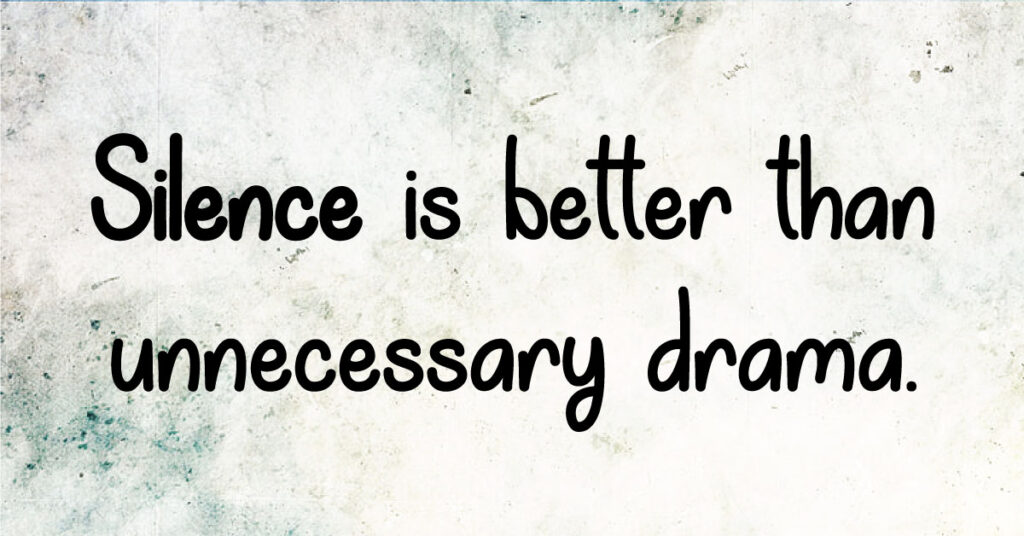Friendships are a vital part of our lives, offering companionship, emotional support, and joy. However, not all friendships last forever. They aren’t always meant to endure the test of time. On occasion, these bonds can transform into sources of stress and discontent, proving more detrimental than beneficial.
Identifying the signs that indicate the need to sever ties with a friend could be a daunting task, but it’s an essential step for preserving one’s mental health and overall wellbeing. The following are eight indicators that it might be time to bid adieu to a friendship, regardless of how challenging this decision may seem.
Your core values differ
Friendships often blossom on the basis of shared values and common interests. However, as individuals evolve, their core beliefs and principles might change, leading to a divergence in values with their friends.
This shift can make interactions challenging and may even result in discomfort due to their friend’s decisions that no longer align with their own. Such signs of discordance indicate that the individuals are on different life paths and it could be time to reconsider the future of the friendship.
The friendship is consistently one-sided
In a balanced friendship, both parties should be equally invested in maintaining contact and making plans. If you often find yourself being the initiator or the primary source of support without receiving similar efforts in return, it suggests an imbalance in the relationship.
Friendships are not a one-way street; they require mutual participation and reciprocation. Thus, a lack of such balance may indicate that the friendship is not as healthy as it should be.
They betray your trust
Trust is indeed the bedrock upon which any relationship, including friendships, are built. A breach of this trust, particularly if it occurs repeatedly, can cause irreversible harm to the bond shared.
When trust is eroded, the very essence of the friendship comes into question. Therefore, it’s crucial to ponder whether a friendship devoid of trust is worth continuing or not.
You’re losing your individuality
Friendships should be about acceptance and understanding, not about changing oneself to meet the other person’s expectations. If you find yourself altering your personality or behavior to fit into a friendship, or if your friend is trying to shape you into someone who doesn’t resonate with your true self, it can have detrimental effects on your self-esteem and personal identity.
Friendships should foster growth and self-expression, not suppress it. Therefore, compromising your authentic self for the sake of maintaining a friendship is not healthy or sustainable.
Your boundaries are being disrespected
Boundaries in any relationship, including friendships, are crucial as they define our comfort zones and personal space. If a friend continuously overlooks your defined limits or consistently puts you in uncomfortable situations, it’s a clear indication of disrespect.
Everyone is entitled to set their own boundaries, and these should be acknowledged and respected by friends. The failure to do so not only undermines the friendship but also infringes upon personal rights and dignity.
Your friend is disrespectful or mean
Kindness and respect form the basic pillars that uphold a healthy friendship. If you find your friend repeatedly displaying disrespect, acting unkindly, or demeaning you, it’s a red flag signaling that the relationship may not be beneficial.
Such behavior can harm your self-esteem and overall well-being. Hence, it becomes necessary to reassess the friendship under such circumstances and consider whether it is worth maintaining.
Your friend is dishonest
Dishonesty in a friendship can lead to the corrosion of trust, which is a fundamental component of any relationship. When a friend consistently lies or withholds significant information, it can give rise to unnecessary tensions and doubts.
Such behavior disrupts the bond of trust and mutual respect that forms the foundation of a healthy friendship. Therefore, if dishonesty becomes a recurring theme, it could be a sign that the friendship may need to be reconsidered or even terminated.
Your mental health is negatively affected
Friendships are meant to bring joy, support, and positivity to your life. If you find that a particular relationship is causing more stress, anxiety, or sadness than happiness, it’s a clear indication that the dynamics of the friendship need to be evaluated.
Such negative emotions can greatly impact your mental health, which should always be your topmost priority. Therefore, if a friendship is more draining than fulfilling, it may be time to reassess its worth and consider making changes for the sake of your well-being.
Moving on from an ended friendship
Ending a friendship is often a difficult and emotionally challenging process, but it can be an essential part of self-care. Recognizing that a relationship is causing more harm than good is the first step towards prioritizing your emotional well-being.
Once you’ve made the decision to end the friendship, it’s crucial to allow yourself some time to grieve the loss of the relationship. This grieving period can involve reflecting on the good times, acknowledging the reasons for its end, and processing the accompanying emotions.
During this time, consider seeking support from others. Confiding in trusted friends, family members, or even a mental health professional can provide comfort and guidance as you navigate through this emotional transition.
Simultaneously, engaging in activities that you enjoy can help divert your mind from the pain and provide a sense of fulfillment. This could be anything from pursuing a hobby, reading, exercising, or exploring new interests.
Lastly, focus on building new relationships. Seek out friendships that are healthier and more balanced, ones that bring positivity and growth to your life. Remember, the end of one friendship doesn’t mean the end of all friendships. It may just be the beginning of better, healthier connections.
Final Thought
Ending a friendship is never easy, but it’s important to prioritize your mental health and wellbeing. Remember, it’s okay to walk away from relationships that no longer serve you. In doing so, you’re making room for new, positive connections that will enrich your life.








